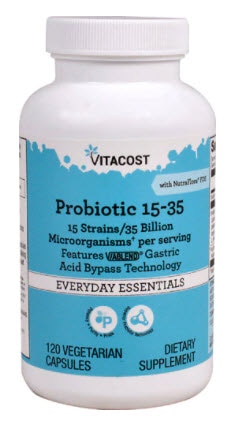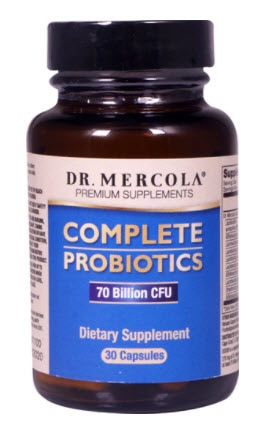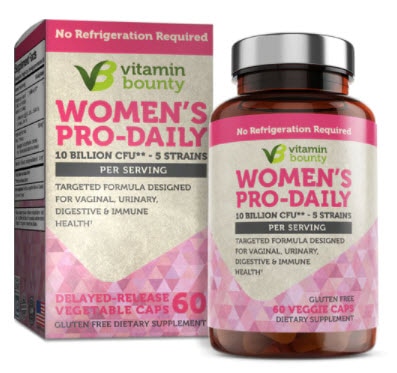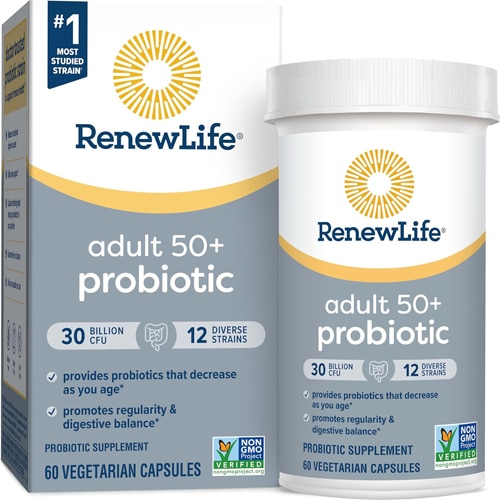Probiotics can be a useful ally when you’re trying to improve your gut health--and they usually don’t cause any problems. But some people experience side effects or worsening symptoms when taking probiotic supplements.
Why is that? Not every supplement is right for every gut. There are many different types and strains of probiotics, and some strains might cause disruption instead of restoring balance.

Here’s what you need to know about probiotics side effects so that you can make smart supplement choices, avoid symptoms and feel your best.
Common probiotics side effects
Most
probiotics supplements contain combinations of beneficial bacteria and yeasts from various sources. Fermented foods like sauerkraut, kimchi and yogurt also contain probiotics, which play a role in the fermentation process.
When you ingest probiotics from either of these sources, they interact with your body’s own microbiome--the trillions of microbes that colonize your body, specifically your gut. These interactions are often beneficial but can occasionally cause:
- Digestive discomfort
- Bloating
- Gas
- Constipation
- Thirst
Fermented foods may also be allergy or headache triggers for people who are sensitive to amines, such as histamine. Certain strains of probiotics can increase histamine in the gut, which could lead to symptoms of an allergic reaction. However,
this correlation hasn’t been proven.
Sometimes supplement ingredients, not the probiotics themselves, are to blame for side effects. Lactose, soy, dairy, gluten and other common allergens can trigger digestive symptoms or rashes, which is why it’s important to always read labels before buying!
Can probiotics side effects be dangerous?
Healthy people should be able to take probiotics without any severe reactions or long-term problems. Side effects like bloating often resolve within a week or two of starting a supplement as the body adjusts to the new microbial strains.
However, healthcare experts recommend avoiding probiotic supplements if you:
Weakened immunity increases the risk of getting sick from probiotics. Instead of creating balance,
the microbes may cause infections when the immune system isn’t working optimally. A doctor can advise on whether a low dose may be safe in these circumstances or if probiotics should be avoided altogether.
In the case of SIBO, taking probiotics can actually make the condition worse by promoting the growth of more bacteria. Yeast-based strains may be safer because
they can’t multiply out of control in the small intestine.
The National Center for Complementary and Integrative Health notes that, in some cases, probiotic microorganisms can produce “harmful substances” or “transfer ...
antibiotic resistance genes from probiotic microorganisms to other microorganisms in the digestive tract.” The potential role of probiotics in antibiotic resistance—and how this may change the approach to probiotic use—still being investigated.
How to minimize side effects from probiotics
The smartest way to keep the risk of symptoms at a minimum when taking probiotics is to start small. More isn’t always better! Most people don’t need megadoses of microbes to get benefits.
What’s the best dose? Supplement potency is measured in colony-forming units (CFUs), which are usually listed on the front of the package or bottle. Doses between 10 billion and 20 billion CFUs are common for adults, although
amounts at low at 1 billion can still provide good results.
But the number of microbes isn’t the only thing that matters. Strain types are also important. Many strains have been studied and cited for their unique effects. If you’re trying to address a specific condition, supplements containing strains known to reduce the associated symptoms or address the underlying cause may be the most beneficial.
Take probiotics on an empty stomach and with plenty of water for best results. Follow the manufacturer’s dosing instructions or the advice of a qualified healthcare professional.
Additional cautions to consider
Before taking any probiotic supplement, you want to be sure the strains you want are actually in the bottle. Probiotics often don’t need FDA approval to get on shelves, so low-quality products may not actually contain what they claim—and may incorporate additives or contaminants that could cause their own side effects. To avoid this, choose products from companies known for safety and quality.
Note that some newer probiotic supplements and strain types
haven’t been studied or tested as much as strains that have been on the market for longer. Further research may show that these probiotics have their own range of benefits, but for now, it’s best to proceed with caution if you’re not sure how your body will react.
Taking probiotics safely
You might have to try several different probiotic supplements before finding one that offers the benefits you want without side effects. (Some companies offer to do the work for you by creating personalized probiotics based on the results of a gut test, but this is still a fairly new concept without a great deal of scientific support.)
If side effects from a probiotic last longer than a couple of weeks, stop taking the supplement. Wait for symptoms to resolve before switching to a different product. If the side effects are serious or get worse, discontinue all probiotics and talk with your doctor.
†These statements have not been approved by the Food and Drug Administration. These products are not intended to diagnose, treat, cure or prevent disease.
Featured products:



 Here’s what you need to know about probiotics side effects so that you can make smart supplement choices, avoid symptoms and feel your best.
Here’s what you need to know about probiotics side effects so that you can make smart supplement choices, avoid symptoms and feel your best.






